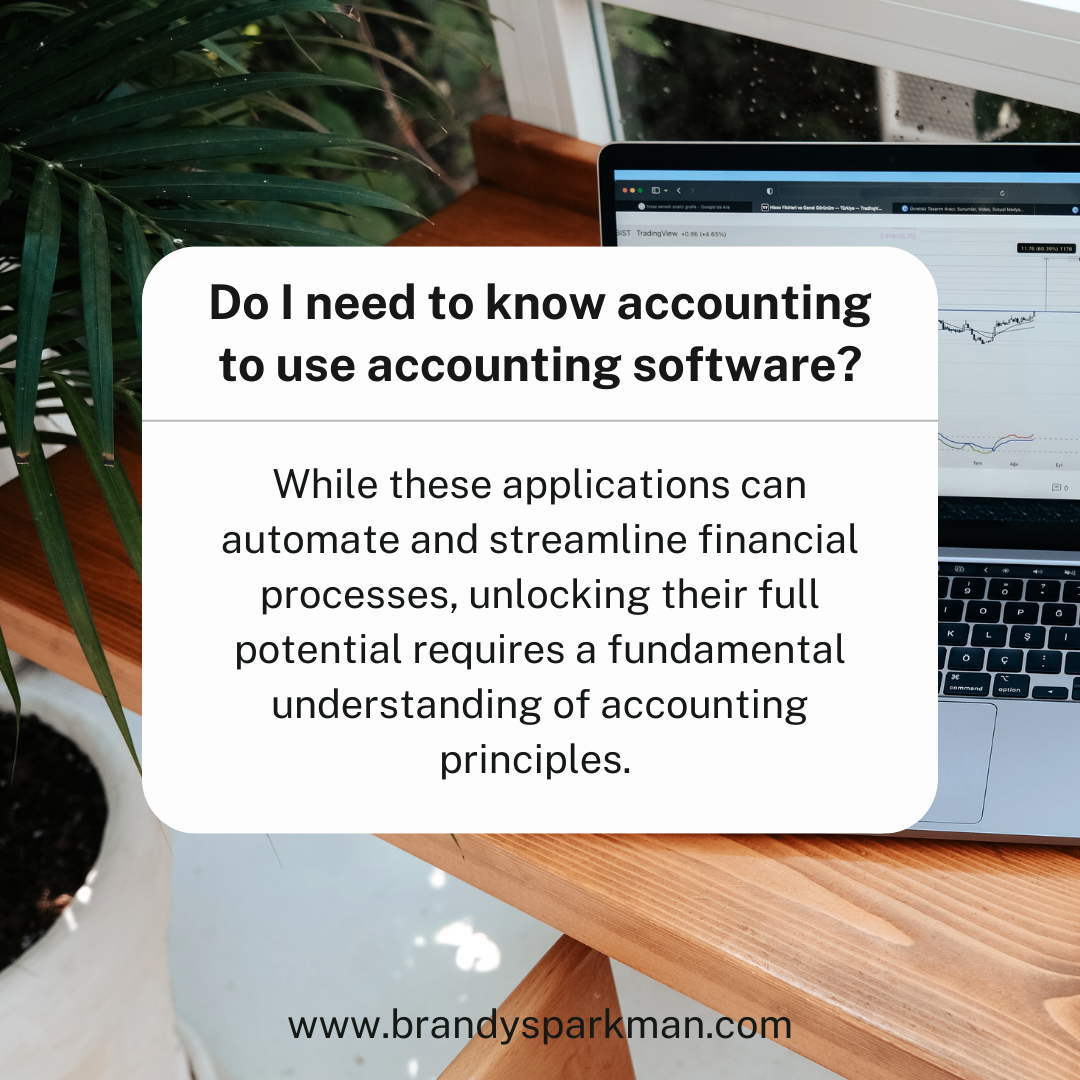The Importance of Understanding Accounting for Optimal Software Utilization
As a small business owner, you might be wondering…
Do I need to know accounting to use accounting software?
In the world of business, leveraging technology has become crucial for efficiency and growth. One powerful tool that many businesses rely on is accounting software. While these applications can automate and streamline financial processes, unlocking their full potential requires a fundamental understanding of accounting principles. In this blog post, we will explore why grasping accounting concepts is vital for making the most of accounting software.
The Foundation: Accounting Basics
Accurate Data Entry:
Understanding accounting basics ensures accurate data entry. Properly categorizing transactions, maintaining balance sheets, and reconciling accounts are critical for generating reliable financial reports through software.
Financial Decision-Making:
Accounting knowledge empowers business owners to interpret financial statements. This understanding is key for making informed decisions, identifying areas for improvement, and strategically planning for the future.
Maximizing Software Features
Customization and Setup:
A solid grasp of accounting principles helps in customizing accounting software to suit the specific needs of your business. This includes setting up chart of accounts, tax codes, and other features for accurate financial representation.
Efficient Reporting:
Accounting software offers robust reporting capabilities. Knowing how to interpret these reports allows you to gain insights into cash flow, profitability, and overall financial health, enabling better-informed strategic decisions.
Compliance and Auditing
Legal Compliance:
Understanding accounting principles can aid in compliance with tax regulations and other financial laws. Accounting software can automate many compliance tasks, but a foundational knowledge aids in more accurate adherence.
Smooth Auditing Processes:
In the event of an audit, familiarity with accounting principles eases the auditing process. Businesses can efficiently provide the necessary documentation and demonstrate financial transparency.
Troubleshooting and Error Resolution
Identifying Errors:
Accounting software can sometimes generate errors. Knowing accounting fundamentals helps in quickly identifying and resolving issues, ensuring the accuracy of financial records.
Preventing Fraud:
An understanding of accounting principles acts as a deterrent against fraud. Business owners can recognize irregularities in financial records and implement internal controls through accounting software.
Learning Resources and Continuous Improvement
Education and Training:
Investing time in learning accounting basics enhances the effectiveness of accounting software. Many software providers offer educational resources, and understanding accounting principles improves the uptake of these resources.
Continuous Improvement:
As businesses evolve, so do their financial needs. Understanding accounting allows for ongoing optimization of accounting software usage, adapting it to changing business requirements.
The synergy between understanding accounting principles and utilizing accounting software is the key to unlocking the full potential of both. Businesses that invest in foundational accounting knowledge not only optimize software usage but also pave the way for informed decision-making, legal compliance, and long-term financial success. As your business continues to evolve, embracing the powerful combination of accounting understanding and software utilization becomes a strategic advantage.

